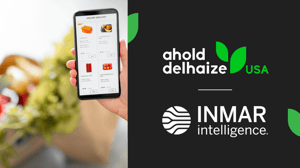AI Emerges as a New Tool for Fighting Food Allergies
Grocers, RDs have new way to imprint store's wellness image and keep shoppers safer. Grocers and RDs have a new way to imprint their store’s wellness image and help keep shoppers safer.
November 28, 2018


For the one in 10 Americans who live with food allergies and their families, only constant vigilance keeps mealtime safe. Food shopping at retail or online can be an exhaustive effort to filter out risky products every time—because even familiar products may change their ingredients as new items constantly come to market. Shoppers know this and struggle, which is why many chose very restrictive (and, may I say, sometimes boring) diets to avoid the hassle.
Today’s grocery retailers know they can truly differentiate from their competitors if they focus on helping consumers eat healthier and smarter; retail and corporate dietitians are making a huge difference in this regard through their insights, programs and recommendations for consumers.
But the big question is: How can we expand this depth of knowledge and advice to reach the 32 million consumers that shop in our U.S. grocery stores each day? The answer lies in using technology, a part of which exists for the almost 50 million adults who now have access to a “smart speaker,” or artificial-intelligence device, including Alexa, Google Home and Sonos. The other part of the answer lies in the fact that even more impact would occur if retailers had a robust, accurate AI tool with machine learning capabilities that unblinkingly track and update product and recipe information across the marketplace. Such a tool used in-store and online, designed alongside nutritionists and allergists, could enable practical, personalized, tailored health and lifestyle recommendations based on each shopper’s condition, preferences and behavior—and lead to a better quality of life.
Spoon Guru, a London-based technology firm, conducted a study and randomly sampled 2,000 food products from their database of 96,141 to validate whether machine learning could perform as accurately as qualified health professionals in recommending foods suitable for people with a nut allergy. (Full disclosure: While I did not participate in the research study, Spoon Guru is a sponsor of Retail Dietitians Business Alliance, and I work with them on other projects).
The results of the study convincingly proved AI could be used in conjunction with dietitians, nutritionists and healthcare professionals to help patients with nut allergies to find the correct and allergy-safe products.
The Spoon Guru Machine Learning model (SGML) was independently compared against a benchmark of findings from five registered dietitians (all British Dietetic Association members who consult with food-allergy patients) and three clinical allergists. There were no food labels to identify each item; instead, health professionals saw only a spreadsheet of product names, ingredients lists and all on-pack statements. In the study, SGML was the most precise and made the fewest errors compared to healthcare professionals. Its measures were significantly better than six out of the eight healthcare professionals, and considerably better than the second most accurate healthcare professional.
Specifically, SGML was 99.8% precise with 15 errors, while practitioners were 90.5% precise on average with 183.6 errors. The dietitians and allergists ranged in precision from 82.9% to 98.8%. Also, SGML was 99.3% accurate, while practitioners were 90.8% accurate on average. The dietitians and allergists ranged in accuracy from 83.1% to 99%.
After reviewing the research, Caroline Bovey, honorary chairman of the British Dietetic Association, said the study “demonstrates the supportive role that evolving technologies like AI can have on healthcare. Dietitians already use assistive technology, which significantly aids their practice and, in this case, clearly it can help patients who need to adapt their diets to access the broadest range of choices in a safe way.”
Dietitians understand that such tools streamline their processes by allowing more time for dietary counseling, negotiating patient goals for dietary and lifestyle change, and creating tailored solutions for specific patient needs.
As evidenced in the study, the time has come for grocers and retail dietitians to embrace proven AI tools that can be integrated into retailer apps to help keep people safer, and deeply imprint their store’s wellness image. It’s time to use AI for a lot more than just ordering snacks.
About the Author
You May Also Like




